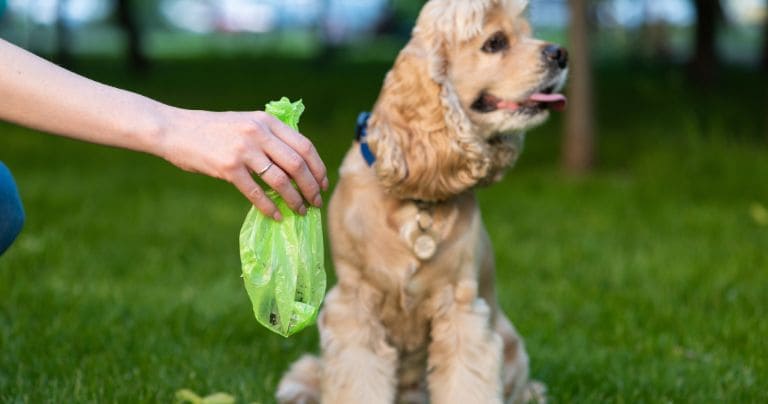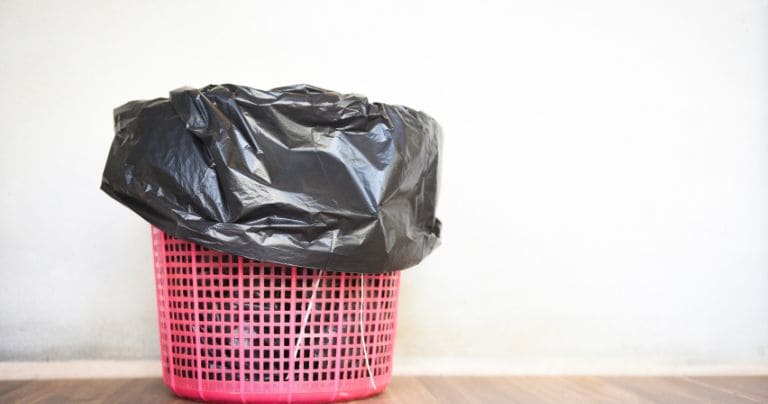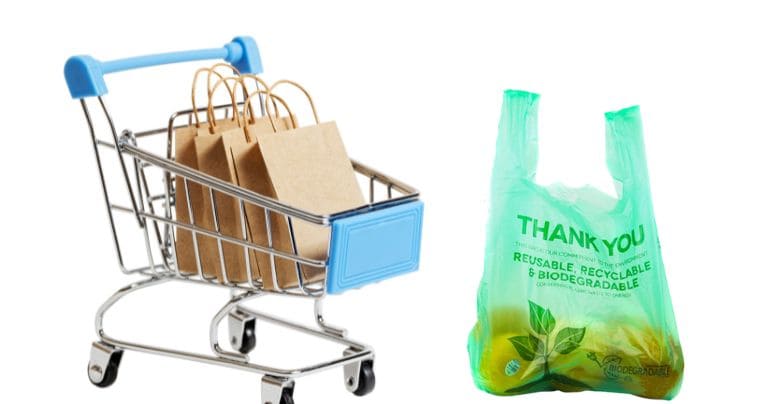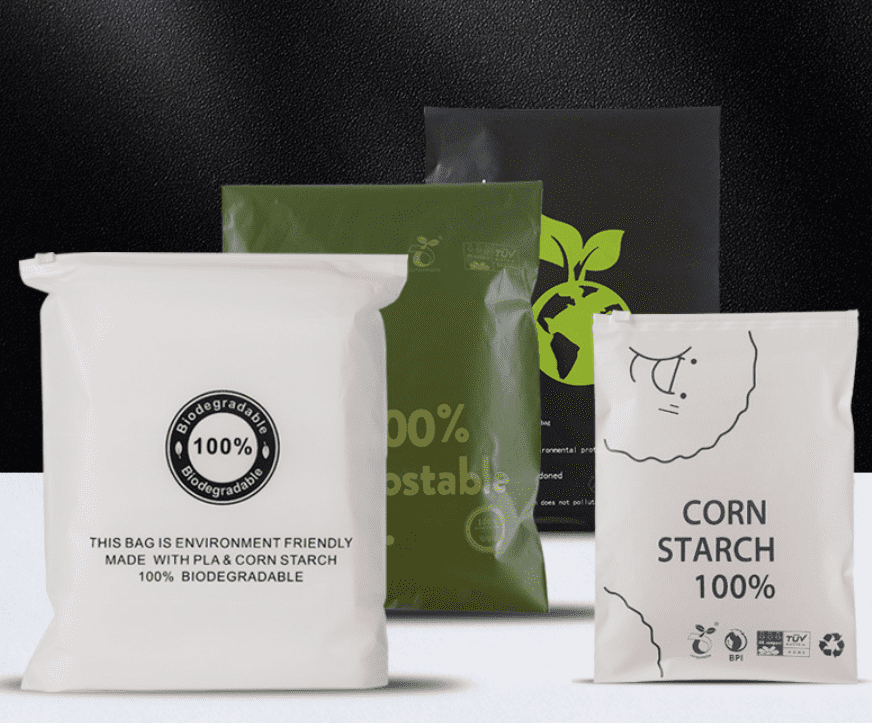Table of Contents
Are you looking to make your home more eco-friendly? Discover the benefits of compostable trash bags and learn top tips for successfully integrating them into your greener lifestyle.
Compostable trash bags are an excellent way to reduce plastic waste in your home. Made from plant-based materials, they break down naturally in a compost environment. To successfully use compostable bags, choose certified products, avoid overloading, and properly store and dispose of them. Some popular brands include BioBag, Monopacking, UNNI, and Primode.
Keep reading for more information on compostable trash bags and top tips for making the most of them in your green home.
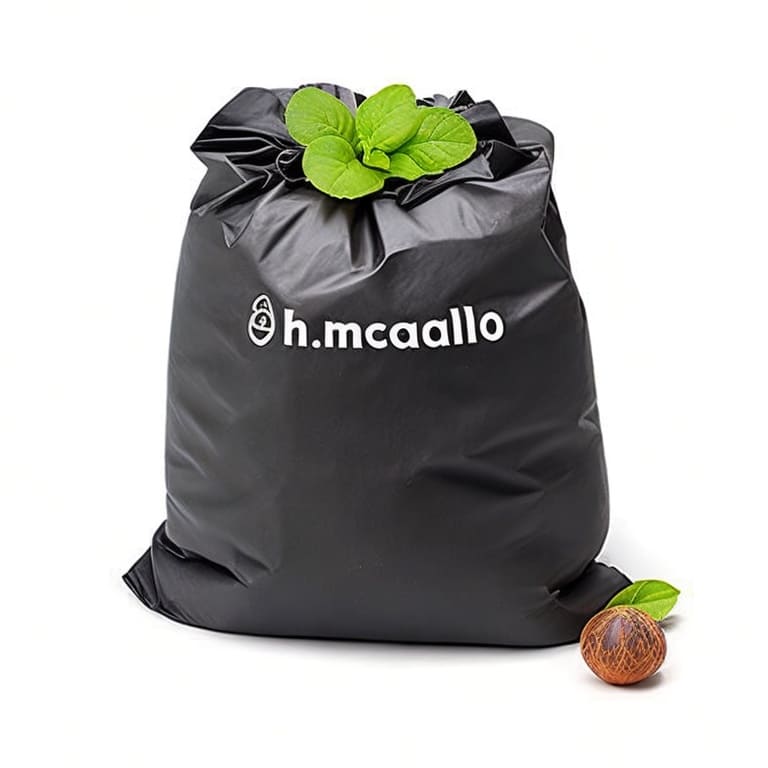
Why Choose Compostable Trash Bags?
Compostable trash bags offer several advantages over traditional plastic bags:
Sustainability
Made from renewable resources like cornstarch or plant-based polymers, compostable bags help reduce our reliance on fossil fuels and decrease plastic pollution.
Biodegradability
Unlike plastic bags, which can take hundreds of years to decompose, compostable bags break down into natural components in a compost environment within a few months.
Waste Reduction
Using compostable bags encourages proper disposal of organic waste, diverting it from landfills and reducing methane emissions.
Eco-conscious Living
Switching to compostable bags is a simple yet effective way to make your home greener and contribute to a more sustainable future.
Types of Compostable Trash Bags
Home Compostable Bags
These bags are designed to break down in your backyard compost pile or bin. They usually decompose faster than industrial compostable bags.
Industrial Compostable Bags
These bags are meant for large-scale composting facilities and can take longer to break down. They may not be suitable for home composting systems.
Compostable Bags for Yard Waste
Specifically designed to handle leaves, grass clippings, and other yard waste, these bags can be used in both home and industrial composting settings.
Compostable Food Waste Bags
These smaller bags are perfect for collecting food scraps in your kitchen, making it easy to separate organic waste from other household trash.
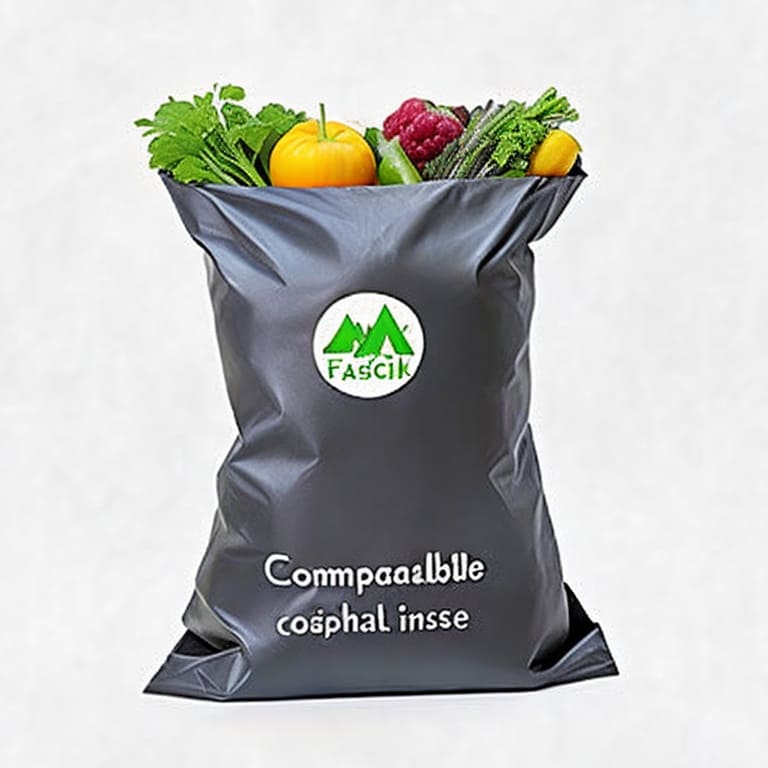
Top Tips for Successfully Using Compostable Trash Bags
Choose Certified Products
Opt for bags that meet composting standards like ASTM D6400 (US) or EN 13432 (Europe). This ensures they will break down properly in a compost environment.
Proper Storage
Store compostable bags in a cool, dry place, away from direct sunlight and heat, as they can degrade prematurely under such conditions.
Don’t Overload
Compostable bags are not as stretchy as traditional plastic bags, so avoid overfilling them to prevent tearing or leakage.
Double Bag for Wet Waste
If you’re disposing of particularly wet or heavy waste, consider double-bagging to ensure the bags hold up until they reach the compost facility.
Use the Right Size
Choose bags that fit your trash bin snugly to prevent slipping or tearing.
Dispose of Properly
Ensure that you’re disposing of compostable bags in a designated composting facility or a home compost system, as they may not break down in a landfill environment.
Educate Your Family
Teach your family members about the proper use and disposal of compostable bags, ensuring that everyone contributes to the success of your eco-friendly initiative.
Encourage Your Community
Share your experiences and knowledge about compostable bags with your friends, neighbors, and local community. This can help spread awareness and encourage more people to adopt sustainable waste managementpractices.
Recommended Compostable Trash Bag Brands
BioBa
BioBag offers a range of compostable trash bags in various sizes and styles, all meeting ASTM D6400 standards. Made from a plant-based resin called Mater-Bi, their bags are suitable for both home composting and industrial facilities.
Monopacking
Monopacking can produce different sizes of compostable garbage bags and other types of biodegradable bags according to customers’ requirements, and the raw materials they use are based on OK compost, EN 13432 standards. 40% are sold to the domestic market and 60% are mainly supplied to foreign customers.
UNNI
UNNI provides certified compostable bags made from plant starches and comply with both ASTM D6400 and EN 13432 standards. They offer a variety of sizes to suit different waste needs, making them a popular choice for eco-conscious households.
Primode
Primode produces 100% compostable trash bags made from cornstarch and other renewable resources. Their bags meet ASTM D6400 standards and are available in multiple sizes, ensuring a suitable option for every household.
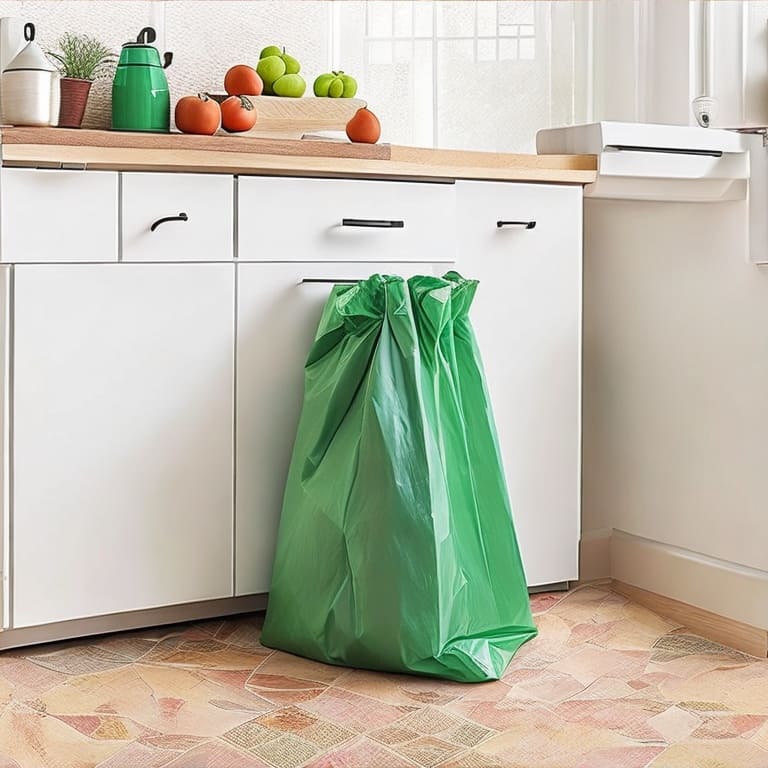
Troubleshooting Common Issues with Compostable Bags
Bags Tearing
If you find your compostable bags are tearing easily, try using a smaller bag size, avoiding overfilling, or double-bagging for heavy or wet waste.
Bags Sticking Together
Sometimes compostable bags can stick together, making it difficult to separate them. To resolve this issue, try storing the bags in a cool, dry place and gently shaking the roll before use.
Bags Decomp0sing Too Quickly
If your compostable bags are degrading before you can dispose of them, ensure you’re storing them correctly, and consider using a thicker bag or double-bagging for added strength.
Difficulty Finding Composting Facilities
If you’re having trouble finding a composting facility near you, contact your local waste management service or search for composting resources online. Some cities even offer curbside compost pickup services. service or search for composting resources online. Some cities even offer curbs
Conclusion
Compostable trash bags are an effective way to make your home greener and reduce plastic waste. By following these top tips and choosing certified products from trusted brands like BioBag, UNNI, and Primode, you can successfully incorporate compostable bags into your eco-friendly lifestyle. Start your journey towards a more sustainable home today by embracing compostable trash bags and adopting greener waste management practices.

